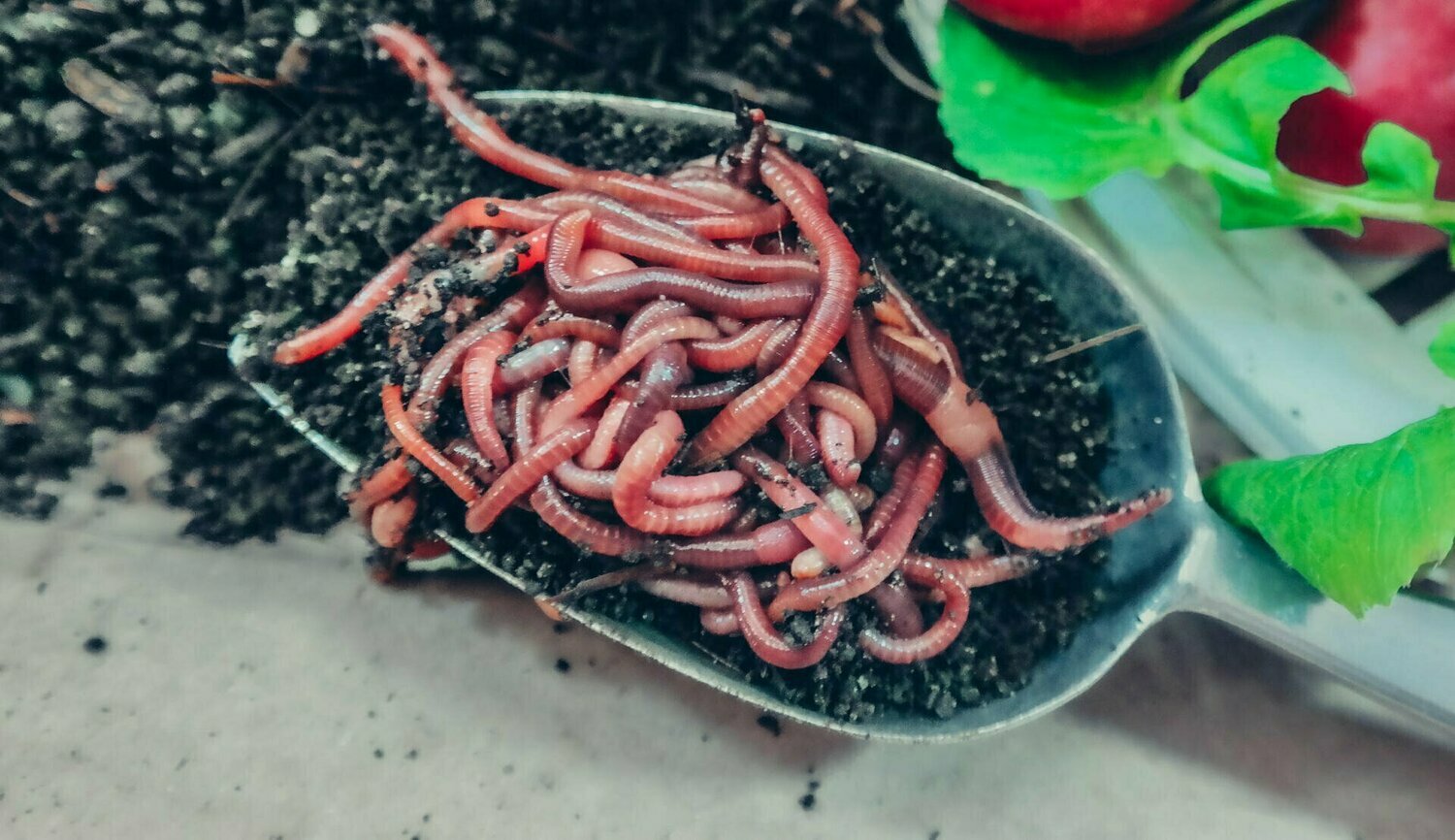Red Wiggler Worms - Boost Your Dirt Health And Wellness Normally
Red Wiggler Worms - Boost Your Dirt Health And Wellness Normally
Blog Article
Red Wiggler Worms Demystified: Opening the Tricks of Vermiculture for Greener Living and Nutrient-Rich Dirt
In the realm of sustainable practices for improving dirt high quality and promoting eco-conscious living, red wiggler worms play a crucial yet often forgotten function. These humble animals have the amazing capacity to change organic waste right into nutrient-rich castings that offer as a powerful natural plant food. By delving right into the globe of vermiculture, one can discover a variety of advantages that extend much past conventional composting techniques. Understanding the complexities of looking after these worms, enhancing their atmosphere, and harnessing their spreadings can bring about a greener lifestyle and much healthier soil for plants to grow.
The Function of Red Wiggler Worms
Red Wiggler worms play an essential role in composting systems by successfully damaging down raw material right into nutrient-rich castings. These starved eaters eat a range of natural materials, such as kitchen area scraps, backyard waste, and paper products. As they feed, the worms' digestion procedures break down the raw material into a fine, dark, and nutrient-dense material referred to as worm castings or vermicompost.
The spreadings produced by Red Wiggler worms are very valuable for dirt health and plant growth. They are abundant in important nutrients like phosphorus, nitrogen, and potassium, which are vital for sustaining healthy plant advancement. In addition, worm castings include helpful microbes and enzymes that help enhance dirt framework, rise water retention, and boost nutrient uptake by plants.
Advantages of Vermicomposting

Moreover, vermicompost, the nutrient-rich final product of vermicomposting, acts as an outstanding natural fertilizer and dirt conditioner. It improves dirt structure, boosts soil oygenation, and increases dirt dampness retention. These buildings add to much healthier plants with stronger root systems and far better resistance to insects and conditions. Vermicompost likewise improves the soil with crucial nutrients like potassium, phosphorus, and nitrogen, promoting plant growth and general dirt fertility.
In addition, vermicomposting assistances sustainable gardening methods by giving a natural and chemical-free alternative to artificial fertilizers. Red Wiggler Worms. This ecologically pleasant strategy not just enriches the dirt but also helps decrease dependence on hazardous chemicals, promoting a greener and much more sustainable method of gardening
Setting Up a Worm Bin
When establishing a worm bin for vermicomposting, correct arrangement is critical to make certain the success of the composting procedure. The initial step in establishing up a worm container is picking an ideal container.
After including the bed linen, introduce the red wiggler worms to the container. It is advised to begin with a handful of worms and slowly enhance as they multiply. The worms should then be supplied with food scraps such as vegetables and fruit peels, coffee premises, and eggshells. It is vital to avoid adding meat, milk, oily, or salty foods to stop drawing in parasites and creating official site unpleasant odors.
On a regular basis keep an eye on the dampness degrees and temperature level in the worm container to make sure optimal conditions for the worms. With appropriate setup and maintenance, the worm helpful resources bin will efficiently convert natural waste into nutrient-rich garden compost for your plants and garden.
Harvesting Worm Spreadings
To successfully collect nutrient-rich worm spreadings from your vermicomposting system, a methodical harvesting method is important. When it comes time to collect the worm castings, there are a couple of crucial actions to comply with to ensure a successful procedure. Stop including fresh food scraps to one side of the worm container for a couple of weeks prior to collecting. This urges the worms to move to the side with fresh bed linens and food, making it easier to scoop out the castings from the various other side.

Troubleshooting Common Issues
Identifying and attending to usual challenges that may occur throughout the vermicomposting procedure is essential for maintaining a productive and healthy and balanced worm bin. Including excess food scraps can lead to a buildup of wetness and acidity in the worm container, possibly hurting the worms. An additional issue is undesirable odors originating from the worm bin.
In addition, if the worm population is declining or the worms appear undesirable, Check This Out it could be as a result of environmental stressors such as extreme temperature levels or pH degrees. Keeping an eye on these aspects and making essential changes is essential for the well-being of the worms. By troubleshooting these usual concerns promptly, vermicomposters can make certain a successful and smooth vermicomposting process while keeping a thriving worm populace.

Conclusion
In verdict, red wiggler worms play an important duty in vermiculture by damaging down raw material right into nutrient-rich dirt. The advantages of vermiculture include greener living and enhanced soil high quality. Setting up a worm container is necessary for successful vermiculture, and collecting worm castings gives useful garden compost for horticulture. By understanding and repairing typical concerns, people can unlock the tricks of vermiculture for lasting living and much healthier soil.
As they feed, the worms' digestive procedures damage down the natural issue into a fine, dark, and nutrient-dense material known as worm castings or vermicompost.
The castings produced by Red Wiggler worms are extremely advantageous for soil health and plant growth. Adding excess food scraps can lead to a buildup of moisture and level of acidity in the worm container, possibly hurting the worms.Additionally, if the worm populace is decreasing or the worms appear harmful, it could be due to environmental stressors such as extreme temperature levels or pH degrees. Establishing up a worm container is important for effective vermiculture, and collecting worm spreadings gives important garden compost for gardening.
Report this page